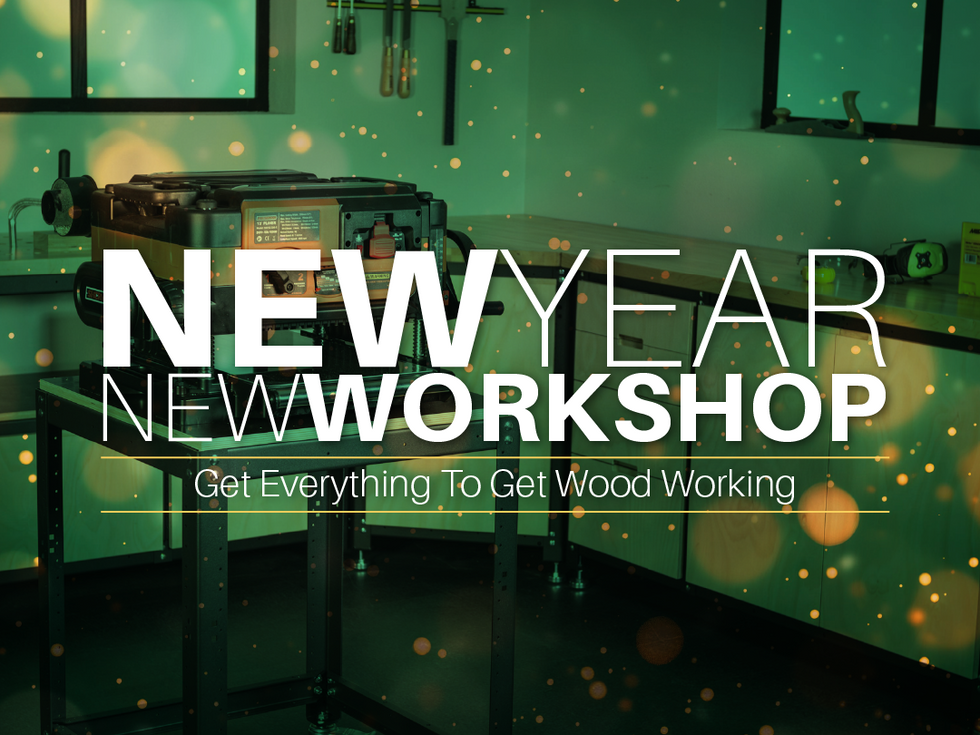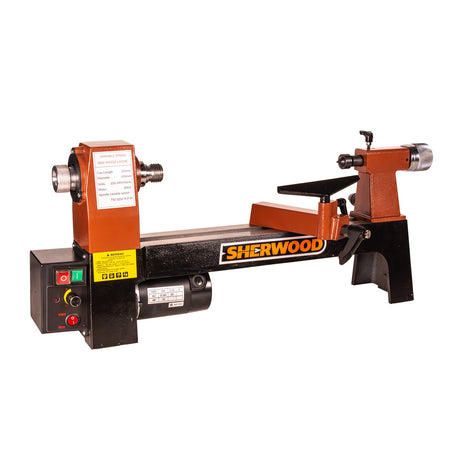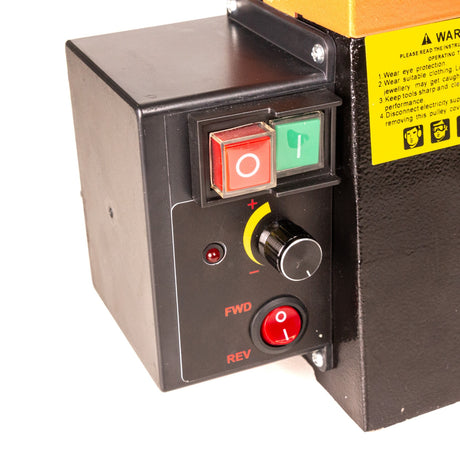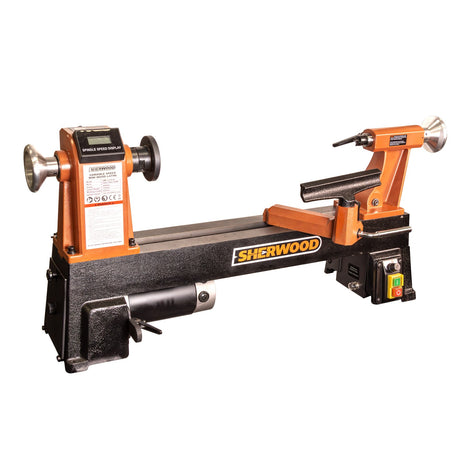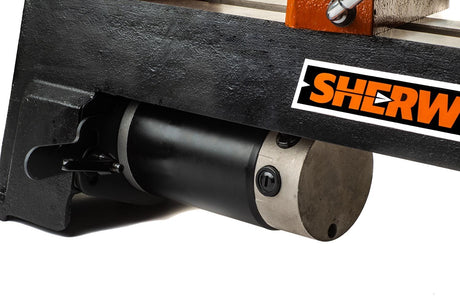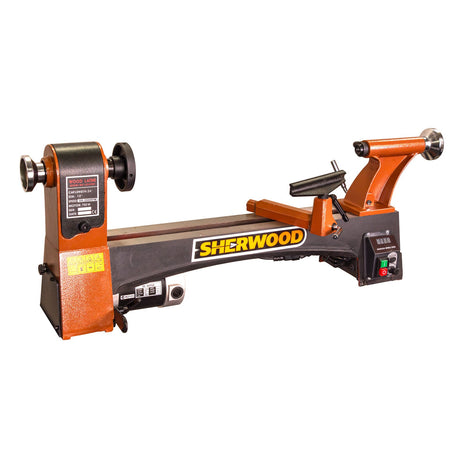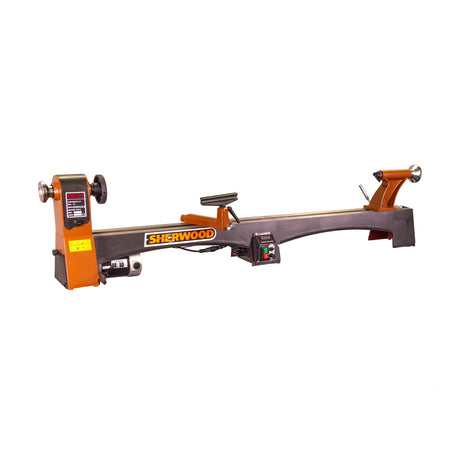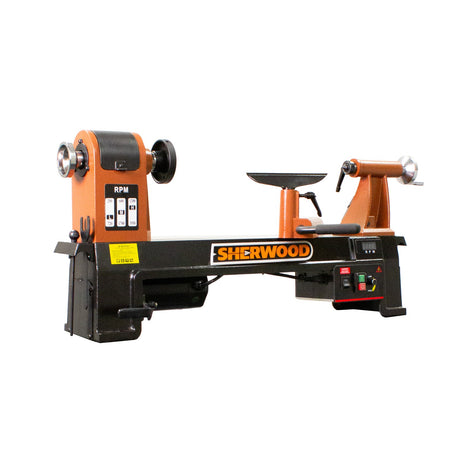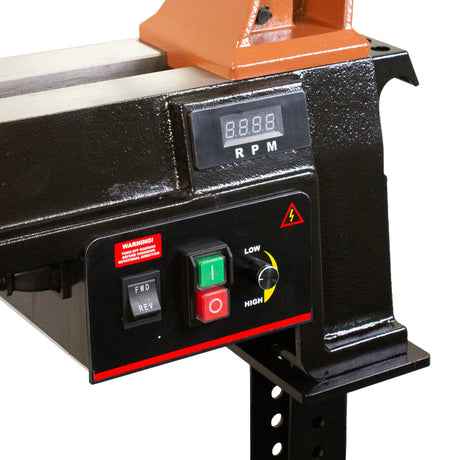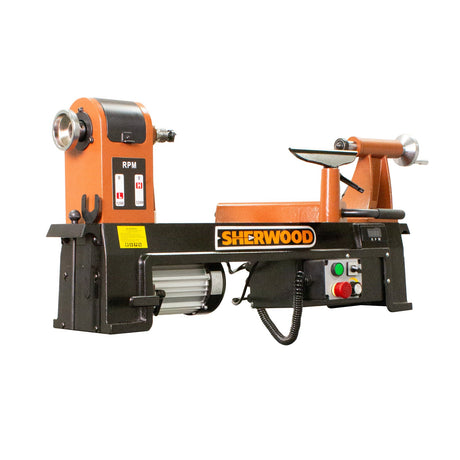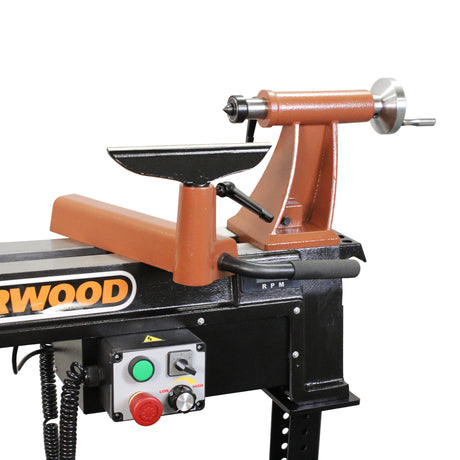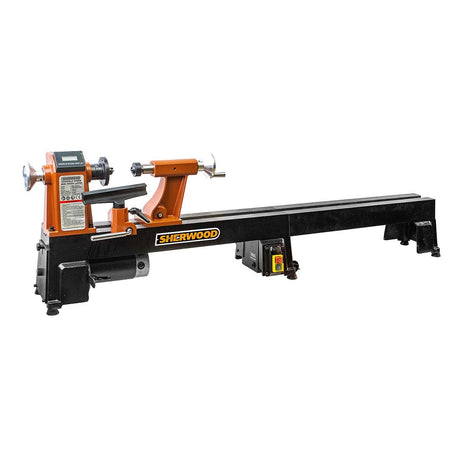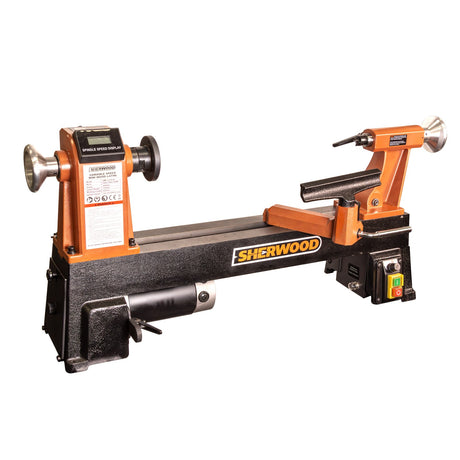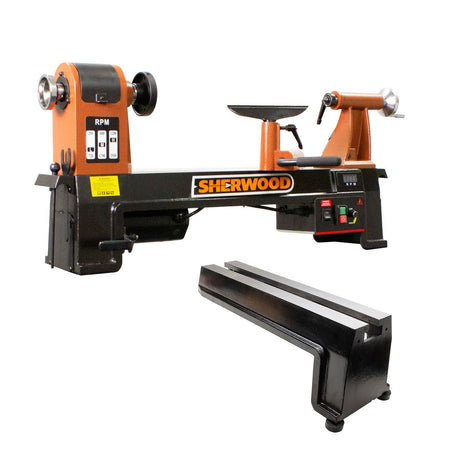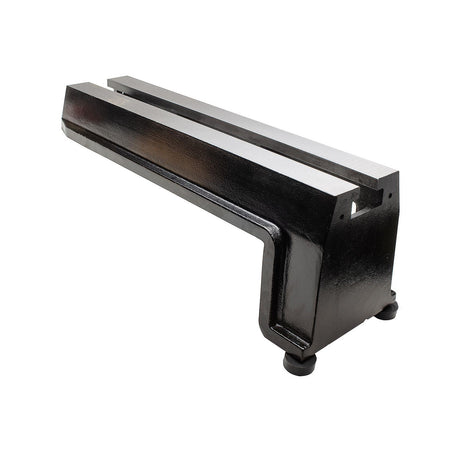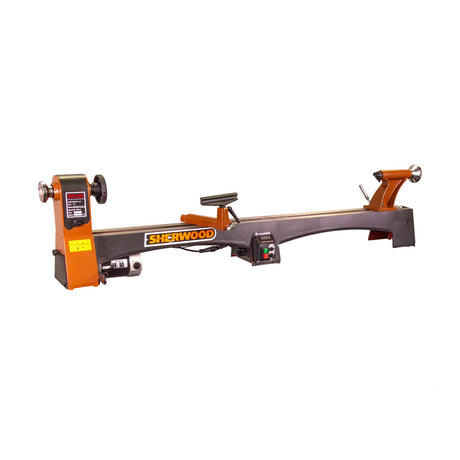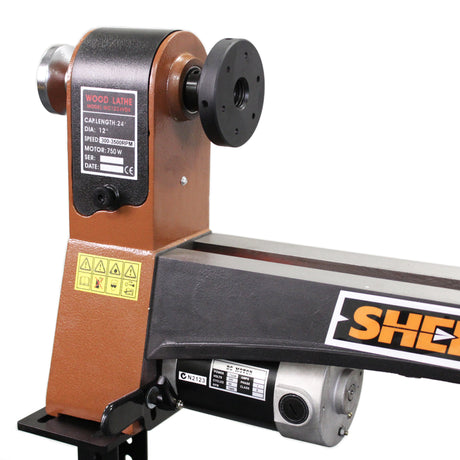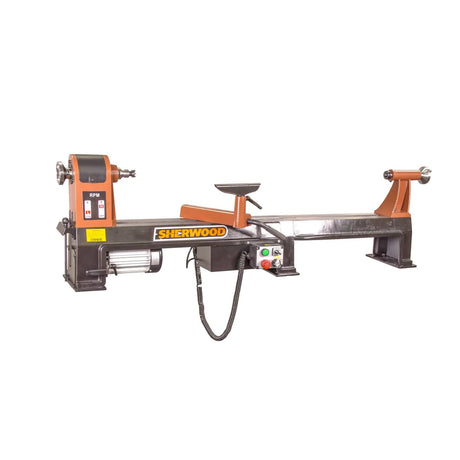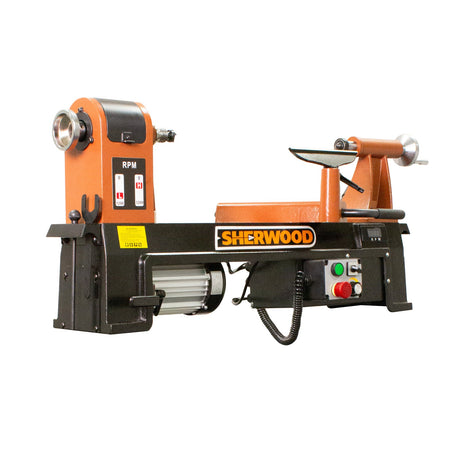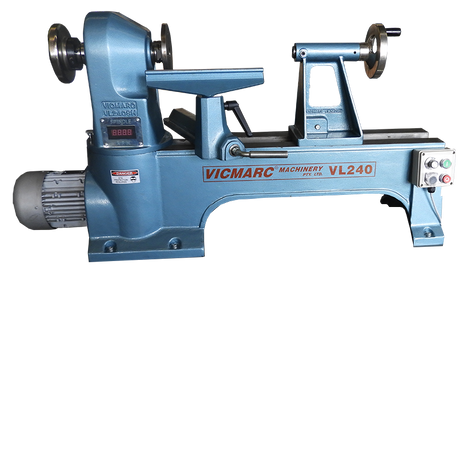Sherwood
Sherwood Benchtop Micro Wood Lathe 200mm Swing 300W Variable Speed
$399.00Unit price /UnavailablePre-OrderSherwood
Sherwood Benchtop Mini Wood Lathe 305mm Swing 550W Variable Speed
$649.00Unit price /UnavailablePre-OrderSherwood
Sherwood Benchtop Minimax Wood Lathe 305mm Swing 750W 1HP
$799.00Unit price /UnavailablePre-OrderSherwood
Sherwood Benchtop Midi Wood Lathe 350mm Swing 750W 1HP Variable Speed
$1,099.00Unit price /UnavailableLow stock (2 units)PROXXON
PROXXON DB-250 Micro Wood Lathe 250 x 40mm 100W
$350.00$367.90Unit price /UnavailableIn stockSherwood
Sherwood Benchtop Midi EVS Wood Lathe 350mm Swing 750W 1HP
$1,599.00Unit price /UnavailableIn stockSherwood
Sherwood Benchtop Mini Wood Lathe with Bed Extension 305mm Swing 550W Variable Speed
$799.00$848.00Unit price /UnavailableSherwood
Sherwood Benchtop Midi Wood Lathe with Bed Extension 350mm Swing 750W 1HP Variable Speed
$1,249.00$1,328.00Unit price /UnavailableIn stockSherwood
Sherwood Benchtop Minimax Wood Lathe with Bed Extension 305mm Swing 750W 1HP
$899.00$978.00Unit price /UnavailablePre-OrderSherwood
Sherwood Benchtop Midi EVS Wood Lathe 350mm with Bed Extension Swing 750W 1HP with Bed Extension
$1,699.00$1,828.00Unit price /UnavailableIn stockVicmarc
Vicmarc VL240 Bench Mount Wood Lathe 2HP EVS Made in Australia
$6,137.90Unit price /Unavailable
Mastering Woodturning with Benchtop Lathes
Benchtop wood lathes offer a compact yet powerful solution for woodturners working in limited spaces or seeking portability. Ideal for crafting spindles, bowls, pens, and other detailed wooden items, these machines strike a balance between functionality and footprint. With sturdy cast-iron construction and variable speed control, benchtop lathes provide stability and precision even under demanding workloads.
Many modern benchtop lathes are equipped with electronic variable speed motors, allowing turners to adjust RPM to suit different materials and turning techniques. Whether roughing out blanks or adding intricate details to a piece, consistent speed control ensures clean cuts and a smoother finish. Some models also feature reverse rotation, enhancing sanding efficiency and overall surface quality.
Despite their smaller size, they often include robust features such as tool rests, indexing heads, and digital speed readouts. These lathes are excellent for hobbyists honing their craft, as well as seasoned turners needing a reliable lathe for smaller tasks or mobile setups.
When choosing a benchtop lathe, key considerations include swing over bed, distance between centres, motor horsepower, and build quality. Regular maintenance, such as cleaning the bedways and lubricating moving parts, will extend the life of the machine and maintain turning accuracy. Pairing the lathe with high-quality turning tools and proper safety gear enhances both performance and enjoyment.
FAQs
What can you make with a benchtop lathe?
Benchtop lathes are commonly used to create items such as pens, bowls, table legs, spindles, candle holders, tool handles, and decorative objects. Their compact size makes them ideal for small- to medium-sized turning projects.
Are benchtop lathes suitable for beginners?
Yes, benchtop lathes are often recommended for beginners due to their manageable size, lower cost, and ease of use. They provide a solid introduction to the fundamentals of woodturning without overwhelming new users.
What size lathe do I need for turning bowls?
For bowl turning, look for a lathe with a swing over bed of at least 12in (approx. 300mm). This determines the maximum diameter of the bowl you can turn. A larger swing allows for more versatility in project sizes.
Do benchtop wood lathes have enough power for hardwoods?
High-quality benchtop lathes typically have sufficient power for hardwoods, especially when fitted with a 1HP or higher motor. Using sharp tools and appropriate speeds is essential for clean and safe turning on dense timbers.
How often should a lathe be maintained?
Regular maintenance is key to performance and longevity. Clean the bedways after each use, check belt tension periodically, and lubricate bearings and moving parts every few months or as specified in the manual.
Can a benchtop lathe be upgraded?
Yes, many benchtop lathes support upgrades such as improved tool rests, bed extensions, digital speed readouts, and aftermarket chucks or centres. These enhancements can significantly increase the lathe’s capability and convenience.
What safety gear should I use while woodturning?
Essential safety gear includes a face shield or safety glasses, dust mask or respirator, and hearing protection. Avoid loose clothing and tie back long hair. Always use sharp tools and maintain a secure stance while turning.
How do I choose between variable speed and stepped pulleys?
Variable speed lathes offer more convenience and finer control, especially for detail work and sanding. Stepped pulley systems are more affordable and durable but require manual belt changes to adjust speed. The choice depends on your budget and workflow preferences.
Is reverse rotation important on a lathe?
Reverse rotation isn’t essential, but it is highly useful, especially for sanding. Reversing the direction helps remove fibres missed in forward rotation and provides a smoother surface finish with less tear-out.

